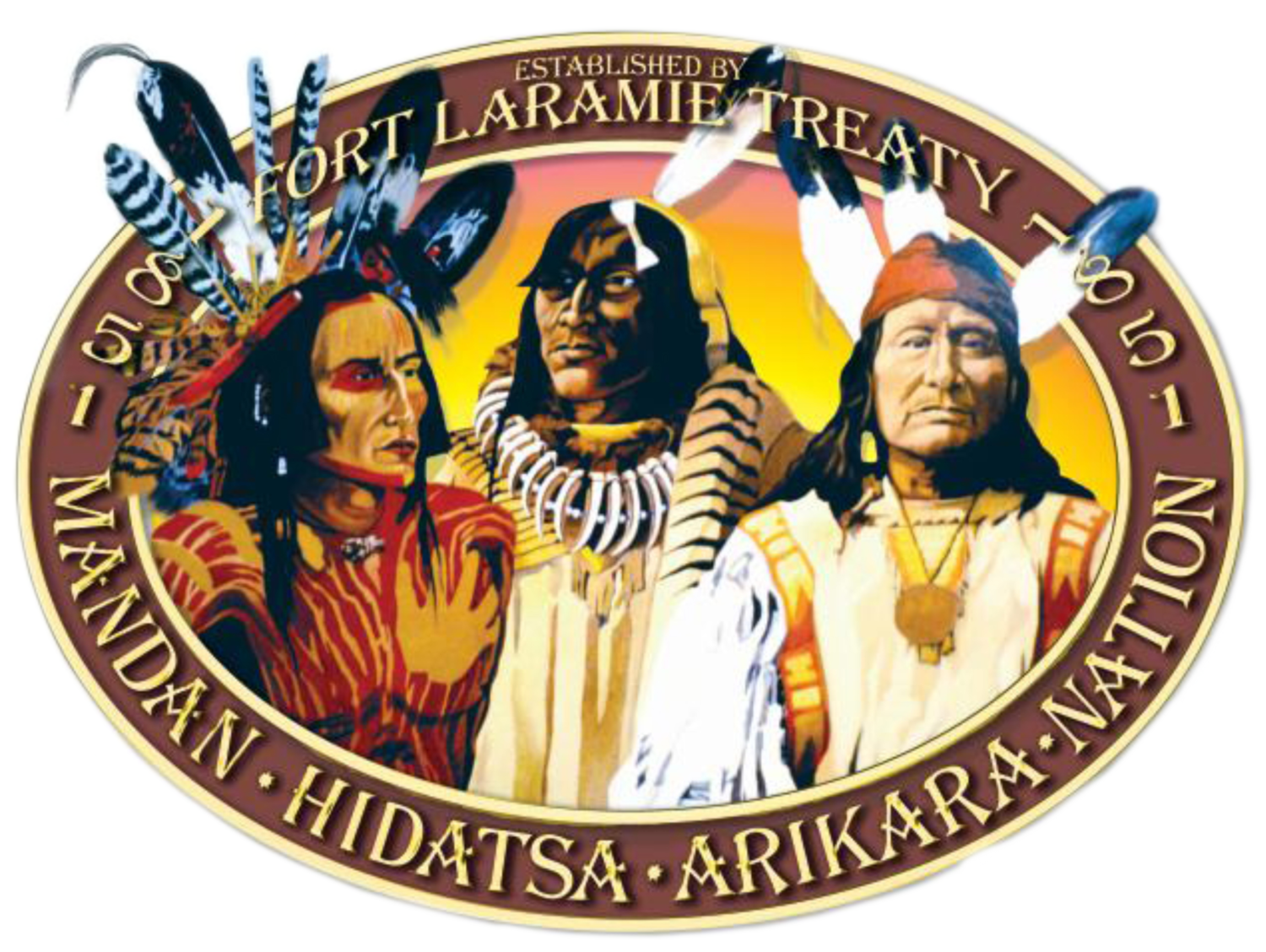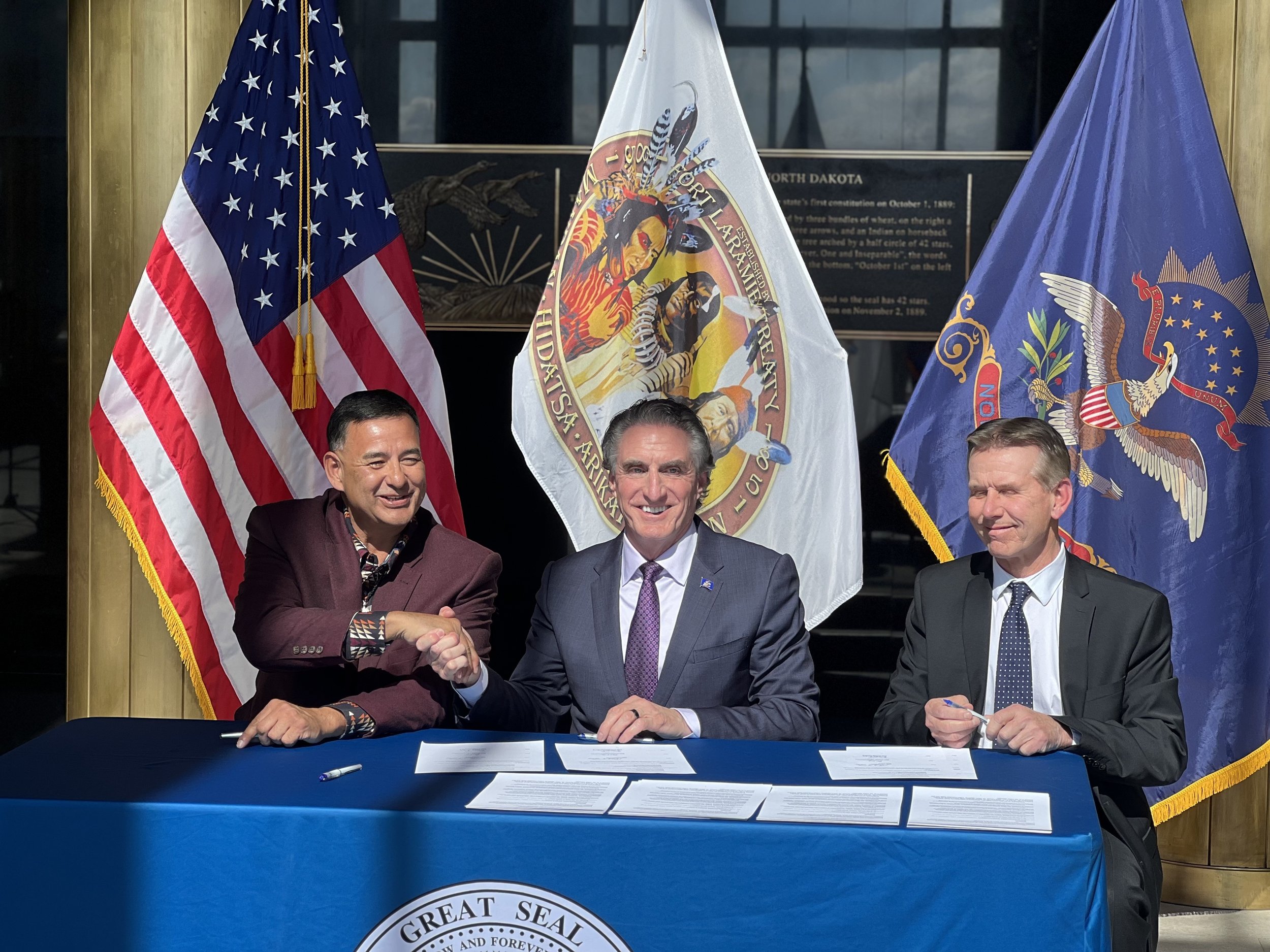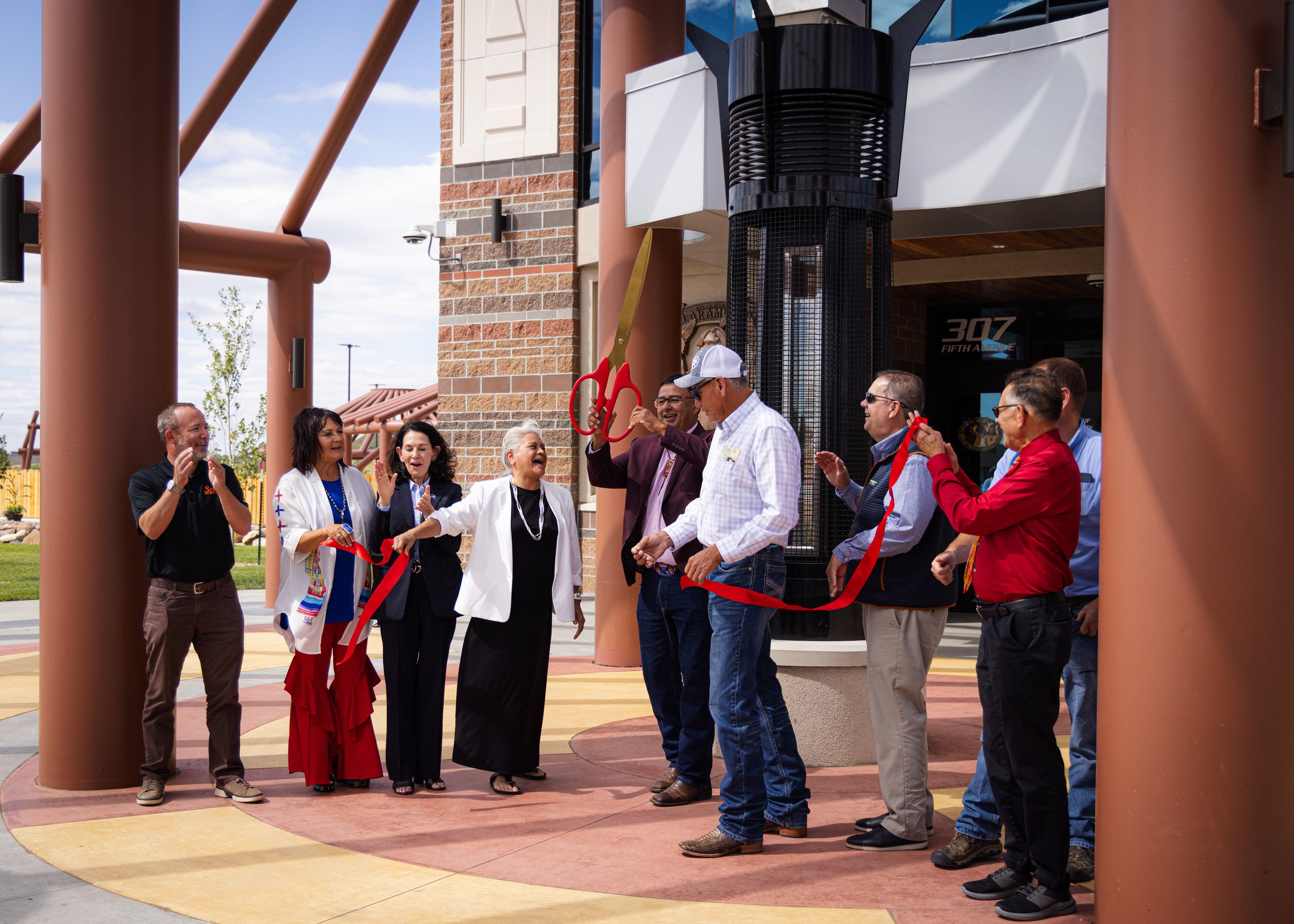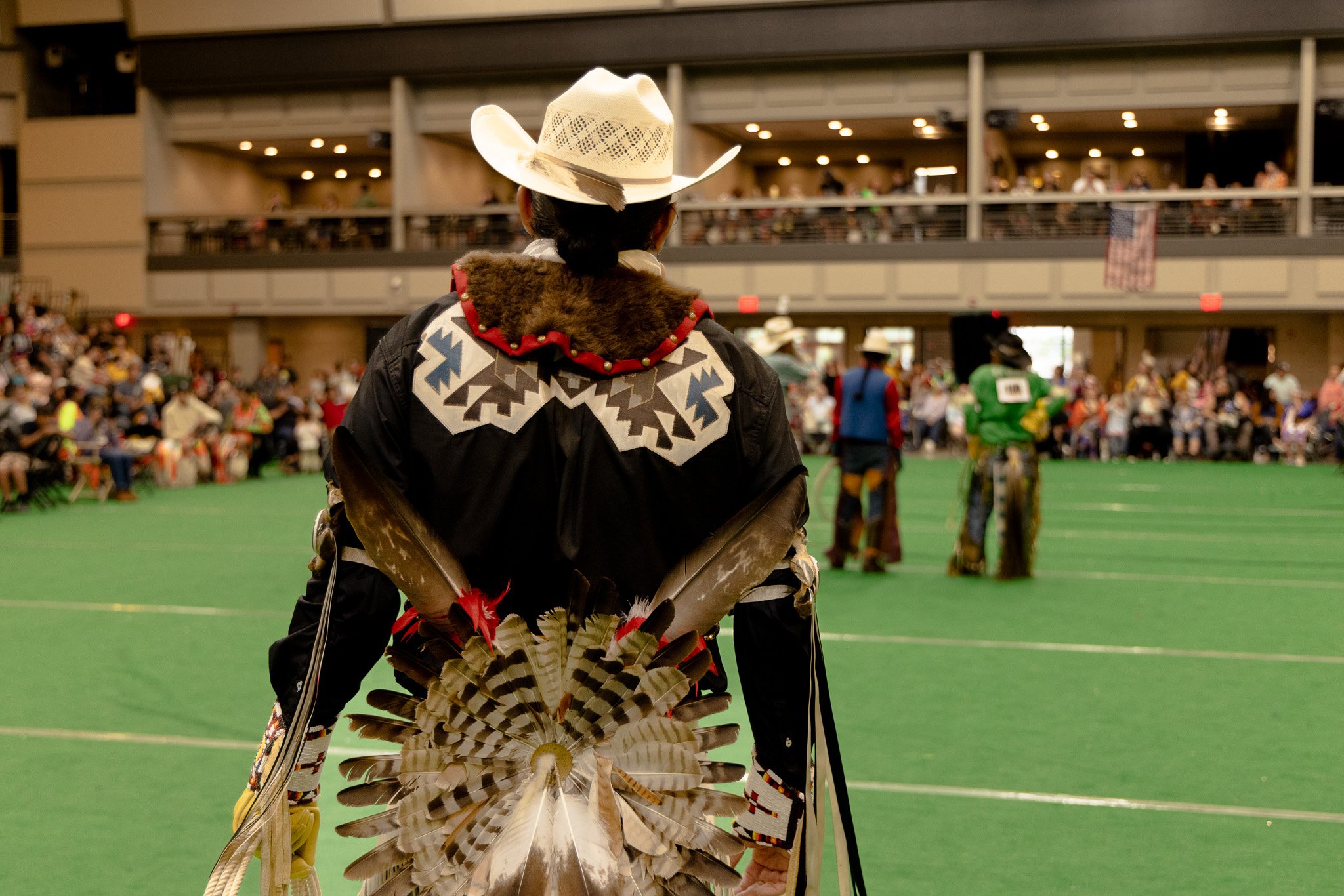Announcement for Four Bears Segment Rental and Mortgage Program Tenants
WIC Participants Appointments Only Announcement
Announcement for North Segment Residential Tenants
Germ Awareness Demonstration Video by North Segment
COVID-19 Information
COVID-19 Information
ND Department of Health Coronavirus Information
Here are some suggestions for patients about self-quarantine per the CDC:
Stay home except to get medical care
People who are mildly ill with COVID-19 are able to isolate at home during their illness. You should restrict activities outside your home, except for getting medical care. Do not go to work, school, or public areas. Avoid using public transportation, ride-sharing, or taxis.
Separate yourself from other people and animals in your home
People: As much as possible, you should stay in a specific room and away from other people in your home. Also, you should use a separate bathroom, if available.
Animals: You should restrict contact with pets and other animals while you are sick with COVID-19, just like you would around other people. Although there have not been reports of pets or other animals becoming sick with COVID-19, it is still recommended that people sick with COVID-19 limit contact with animals until more information is known about the virus. When possible, have another member of your household care for your animals while you are sick. If you are sick with COVID-19, avoid contact with your pet, including petting, snuggling, being kissed or licked, and sharing food. If you must care for your pet or be around animals while you are sick, wash your hands before and after you interact with pets and wear a facemask. See COVID-19 and Animals for more information.
Call ahead before visiting your doctor
If you have a medical appointment, call the healthcare provider and tell them that you have or may have COVID-19. This will help the healthcare provider’s office take steps to keep other people from getting infected or exposed.
Wear a facemask
You should wear a facemask when you are around other people (e.g., sharing a room or vehicle) or pets and before you enter a healthcare provider’s office. If you are not able to wear a facemask (for example, because it causes trouble breathing), then people who live with you should not stay in the same room with you, or they should wear a facemask if they enter your room.
Cover your coughs and sneezes
Cover your mouth and nose with a tissue when you cough or sneeze. Throw used tissues in a lined trash can. Immediately wash your hands with soap and water for at least 20 seconds or, if soap and water are not available, clean your hands with an alcohol-based hand sanitizer that contains at least 60% alcohol.
Clean your hands often
Wash your hands often with soap and water for at least 20 seconds, especially after blowing your nose, coughing, or sneezing; going to the bathroom; and before eating or preparing food. If soap and water are not readily available, use an alcohol-based hand sanitizer with at least 60% alcohol, covering all surfaces of your hands and rubbing them together until they feel dry.
Soap and water are the best option if hands are visibly dirty. Avoid touching your eyes, nose, and mouth with unwashed hands.
Avoid sharing personal household items
You should not share dishes, drinking glasses, cups, eating utensils, towels, or bedding with other people or pets in your home. After using these items, they should be washed thoroughly with soap and water.
Clean all “high-touch” surfaces everyday
High touch surfaces include counters, tabletops, doorknobs, bathroom fixtures, toilets, phones, keyboards, tablets, and bedside tables. Also, clean any surfaces that may have blood, stool, or body fluids on them. Use a household cleaning spray or wipe, according to the label instructions. Labels contain instructions for safe and effective use of the cleaning product including precautions you should take when applying the product, such as wearing gloves and making sure you have good ventilation during use of the product.
Monitor your symptoms
Seek prompt medical attention if your illness is worsening (e.g., difficulty breathing). Before seeking care, call your healthcare provider and tell them that you have, or are being evaluated for, COVID-19. Put on a facemask before you enter the facility. These steps will help the healthcare provider’s office to keep other people in the office or waiting room from getting infected or exposed. Ask your healthcare provider to call the local or state health department. Persons who are placed under active monitoring or facilitated self-monitoring should follow instructions provided by their local health department or occupational health professionals, as appropriate. When working with your local health department check their available hours.
If you have a medical emergency and need to call 911, notify the dispatch personnel that you have, or are being evaluated for COVID-19. If possible, put on a facemask before emergency medical services arrive.
Discontinuing home isolation
Patients with confirmed COVID-19 should remain under home isolation precautions until the risk of secondary transmission to others is thought to be low. The decision to discontinue home isolation precautions should be made on a case-by-case basis, in consultation with healthcare providers and state and local health departments.
Anita Martin MD, FAAP
Chief Medical Officer
Elbowoods Memorial Health Center
See original post from EMHC at the link here.
More Information
Keeping Workplaces, Homes, Schools, or Commercial Establishments Safe
North Segment Providing Sack Lunches to New Town Schools K-12
The Door Resource & Recovery Lodge Cancellations
Diabetes Community Events Cancelled & Awatii Fitness Center rooms will be closed
Due to the circumstances regarding the coronavirus, all community activities with the Diabetes program will be cancelled:
*Diabetes Alert Day (3/24/2020)
*Diabetes Prevention Program (Parshall Red Hall, Wednesdays)
*"Stepping On" Fall Prevention Program (White Shield, Wednesdays)
FITNESS CENTER WORKOUT ROOMS WILL ALSO BE CLOSED TILL FURTHER NOTICE
TAT Head Start Announcement
Attention Parents: TAT Head Start will not have school on Monday, March 16th. We are making a conscious effort to support the tribes mitigation plan regarding the COVID19 pandemic. Classes will resume on Tuesday, March 17th, 2020 at 9:00 and will release at 2:00 pm.
During this time of cautionary preparedness the TAT Head Start will implement the following hours until further notice:
Monday- Friday 9:00 am - 2:00 pm
This schedule does include Wednesdays.
Also, please be prepared for a modification of check in/check out procedures.
Please use consideration when bringing your child to school. If your child exhibits any signs of illness including: fever, cough, sneezing, etc. please refrain from bringing your child to school. With this, please make sure to follow up with your classroom Teacher daily.
It is our responsibility to follow our emergency preparedness plan to mitigate the exposure to our families and staff. If we observe your child exhibits coughing, sneezing, runny nose or fever symptoms you will be asked to take immediately your child home. IHS has provided a hotline for individuals to call in symptoms before visiting the clinic. They are encouraging all patients use the hotline before arriving as they are also enforcing their own emergency preparedness plan.
As we are updated, we will share all information with our parents.
701-627-7641 Elbowoods Memorial Heath Center Hotline
Monday - Friday 8:00am - 5:00pm
866-207-2880 ND State Hotline
Monday - Friday 7:00am - 7:00 pm
We appreciate your cooperation and support at this time as it allows us to continue offering services to our children and families.
Twin Buttes Times - March 2020
Bighorns for Fort Berthold
Bighorns for Fort Berthold
Cultural, historic significance
Submitted Photo These bighorn sheep were among those recently released in the Twin Buttes area on the Fort Berthold Reservation. The sheep were re-introduced following a 150-year absence.
Bighorn sheep were released last week in the Mandaree and Twin Buttes areas of the Fort Berthold Reservation. The introduction of bighorns to tribal land was done in a cooperative agreement between the Three Affiliated Tribes and the North Dakota Game and Fish Department.
In all, 30 bighorn sheep were released. The sheep were captured on the Rocky Boy Reservation located in north-central Montana and transported by trailers back to North Dakota.
“It went great and all the sheep were in good health,” said Jeb Williams, NDGF Wildlife Division chief. “It couldn’t have gone any better. It was wonderful working with the tribe and anytime we can add to that resource is great.”
NDGF provided staff and trailers to transport the bighorns that were captured by helicopter net gunning. A unique aspect of the project is that it was privately funded by KUIU, a hunting and apparel company that is interested in the preservation of bighorn sheep. The release was the culmination of many months of planning.
“We’ve been talking with Game and Fish the last few years and finally did it,” said Toni Smith, Tribal Fish and Wildlife director. “We’re excited to see how it goes and if the herd will expand and flourish.”
A memorandum of understanding was signed between Game and Fish and the Three Affiliated Tribes regarding the bighorn project.
“We’ll be assisting with management of the sheep,” explained Williams. “If and when we’ll see enough mature rams for a hunting season there will be an alternate license system.”
The first license issued would go to the tribe. The second to Game and Fish, all of course depends on the development of the bighorns.
“We’ll have to see where we end up several years down the road,” remarked Williams. “The Mandaree country is definitely good sheep habitat with good potential. It was a good day for sheep, right? Anytime we can add sheep to North Dakota in good sheep habitat is a good thing.”
Three of the 30 sheep released were yearling rams and two were rams about two years of age. Brett Wiedmann, NDGF big game biologist, explained that young rams tend to stay with ewes, unlike older rams that often range long distances.
“We wanted young rams,” said Wiedmann. “The older rams are rough on the ewes in the trailers and, when released, they can take off and never come back. We tried to get mostly two to four year old females which is kind of ideal.”
The sheep were released at two separate locations. Thirteen ewes and three rams were released at the Mandaree site and 12 ewes and two rams at the Twin Buttes site. Wiedmann says he considers both locations to be ideal terrain for bighorn sheep.
“It is really good bighorn habitat, not a lot of it, but really high quality,” said Wiedmann. “All have GPS collars so I get to see where they are at six a.m. every day.”
It is estimated that 150 years or more have passed since the last bighorn sheep roamed the area where the sheep were released, making the re-introduction a culturally significant event for residents of the Fort Berthold Reservation.
“There are historical accounts from our tribal members of hunting them with bow and arrow,” said Cory Spotted Bear, Twin Buttes councilman. “Crows Heart, a full-blooded Mandan and one of the last of the old timers, said they would go to the Little Missouri breaks specifically to hunt bighorns. To see these sheep released was very uplifting and emotional. It’s meaningful for us and the state.”
It is not generally believed that bighorn sheep ever roamed in big numbers in North Dakota, but there’s ample evidence of their early existence. Paintings by famed frontier artist Carl Bodmer includes at least two works of art depicting early native Americans of the area, Two Ravens and Four Bears, wearing bighorn sheep hide.
“Four Bears was a Mandan chief. Bighorn sheep hide is so soft. It’s the best of the best,” said Spotted Bear. “You can see why somebody of Four Bear’s stature would wear such a garmet.”
According to Spotted Bear, the horns of the bighorn rams were utilized too, primarily for ceremonial purposes.
“It was a highly specialized skill,” explained Spotted Bear. “They would heat them up and unravel them and fashion them into a medicine bow. That was something done amongst our tribe.”
While the return of bighorn sheep to reservation land helps preserve a cultural aspect, Spotted Bear says there’s another historical benefit too.
“The prairie thrived when animals moved through. The land heals and native grasses return. For us it’s been 150 years and bighorn sheep are back on the land again,” remarked Spotted Bear.
In time, the Mandaree and Twin Buttes bighorns may become part of the state’s limited bighorn hunting season, usually limited to five or fewer licenses issued from 15,000 or so applications. It takes about eight years for bighorn rams to grow large enough to be considered huntable trophy animals. That means the first hunting season on the newly released bighorns is at least six years away, if all goes well with the sheep and their is no setback to their survival.
See story posted from Minot Daily News at https://www.minotdailynews.com/news/local-news/2020/02/bighorns-for-fort-berthold/
Twin Buttes Times February 2020
Fort Berthold Diabetes Program Blood Pressure Kiosk
DECEMBER 2019 – GENERAL DISBURSEMENT – RESOLUTION NO. 19-268-FWF
The MHA Nation Tribal Business Council has approved Resolution No. 19-268-FWF which authorizes a one-time payment of $1,000.00 disbursement
to each eligible MHA Nation Tribal member enrolled as of December 2nd, 2019. This disbursement, per the Resolution, will be mailed out no later than
December 9th, 2019, to all members 14 years old and above.
Any delinquent monies owed to the Three Affiliated Tribes Division of Child Support Enforcement shall be deducted from this distribution at the rate of $500.00.
Enrolled members under the age of 14 as of April 1st, 2020, will be required to have their legal guardian fill out the
December 2019 - Resolution No. 19-268-FWF Minor Disbursement Form and return to the People’s Fund Department @ the MHA Complex.
Forms will be available at People’s Fund Dept., Tribal Finance, segment offices, and the MHA Nation website.
Enrolled members under the age of 14 as of April 1st, 2020, that DO NOT have a completed December 2019 - Resolution No. 19-268-FWF Minor Disbursement Form returned to the People’s Fund Department by April 1st, 2020, will have the disbursement held in the pooled fund account until the age of 18.
Enrolled members under the age of 14 as of April 1st, 2020, in the custody of the Three Affiliated Tribes Social Services and under the
Indian Child Welfare Act shall have their disbursement held in Trust until the age of 18.






